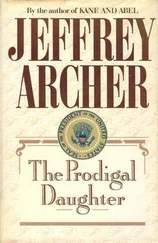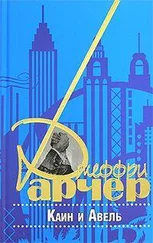“Yes, I’m just finishing off a letter to Mr. Stratton, so could you ask Hamish to come up? I’d like him to drive into the village and post it.”
“Of course, sir.”
Arthur returned to the letter.
May I also add how delighted I was to learn that you will personally be supervising my account in the future. It gives me succour to know that my affairs will be in such safe hands.
Yours sincerely
There was a knock on the door and Laidlaw walked in.
“You asked to see me, sir?”
“Yes, Hamish. Just a signature.”
Mr. Gruber handed back the boys’ essays before returning to his desk at the front of the class.
“Not a bad effort,” the young schoolmaster said, “except for Jackson, who clearly doesn’t believe Goethe is worthy of his attention. And as this is a voluntary class, I’m bound to ask, Jackson, why you bothered to enroll?”
“It was my father’s idea,” admitted Jackson. “He thought there might come a time when it would be useful to speak a little German.”
“How little did he have in mind?” asked the schoolmaster.
Jackson’s friend Brooke, who was seated at the desk next to him, whispered loudly enough for everyone in the class to hear, “Why don’t you tell him the truth, Oliver?”
“The truth?” repeated Gruber.
“My father is convinced, sir, that it won’t be too long before we are at war with Germany.”
“And why should he think that, may I ask? When Europe has never been at peace for such a long period of time.”
“I accept that, sir, but Pa works at the Foreign Office. Says the Kaiser is a warmonger, and given the slightest opportunity will invade Belgium.”
“But, remembering your treaty obligations,” said Gruber as he walked between the desks, “that would also drag Britain and France into the conflict.” The schoolmaster paused for thought. “So the real reason you want to learn German,” he continued, attempting to lighten the exchange, “is so you can have a chat with the Kaiser when he comes marching down Whitehall.”
“No, I don’t believe that’s what Pa had in mind, sir. I think he felt that once the Kaiser had been sent packing, if I could speak a little German, I might be in line to be a regional governor.”
The whole class burst out laughing, and began to applaud.
“We must hope for the sake of your countrymen as well as mine, Jackson, that it’s a very long line.”
“If Kaiser Bill were to wage war, sir,” said Brooke, sounding more serious, “would you have to return to your country?”
“I pray that will never happen, Brooke,” said Gruber. “I look upon England as my second home. Europe is at peace at the moment, so we must hope Jackson’s father is wrong. Nothing would be gained from such a pointless act of folly other than to set the world back a hundred years. Let us be thankful that King George V and Kaiser Wilhelm are cousins.”
“I’ve never cared much for my cousin,” said Jackson.
“Have you heard the news?” said Brooke, as he and Jackson strolled across to the refectory a few weeks later.
“What news?” said Jackson.
“Mr. Gruber will be returning to Germany within a fortnight.”
“Why?” said Jackson.
“It seems the headmaster thought it wise given the circumstances.”
“I’m sorry to hear that,” said Jackson as they sat down on a wooden bench and waited to be served lunch.
“But I thought you didn’t like having to study German,” said Brooke, as he attempted to spear a soggy carrot with his fork.
“And I still don’t. But that doesn’t mean I don’t like Mr. Gruber. In fact he’s always struck me as a thoroughly decent fellow. Not at all the sort of chap one would want to go to war with.”
“We might even be at war with him in a few months’ time,” said Brooke, “and if you’re still thinking of making the army your career, you could find yourself on the front line.”
“I don’t think you’ll be exempt from that privilege, Rupert,” said Oliver, swamping his food with gravy, “just because you’re going up to Cambridge to swan around writing poetry.”
“Which reminds me,” said Brooke. “My mother wondered if you’d like to join us in Grantchester for a couple of weeks this summer. And I can promise you some rather interesting gals will be joining us.”
“Can’t think of anything better, old chap. That’s assuming Kaiser Bill hasn’t got other plans for us.”
Oliver Jackson did spend a couple of carefree weeks with his friend, Rupert Brooke, that summer, before they parted and went their separate ways. Brooke to read Classics at King’s, while Jackson reported to the Royal Military Academy at Sandhurst, to accept the King’s shilling and spend the next two years being trained as an officer in the British Army.
In October 1913, Second Lieutenant Jackson of the Lancashire Fusiliers reported to his regiment’s depot in Chester, where he quickly discovered that talk of war with Germany was no longer confined to the Foreign Office, but was now on everyone’s lips. However, no one could be sure what would light the fuse.
When Kaiser Wilhelm’s close friend and ally, the Archduke Franz Ferdinand of Austria, was assassinated in Sarajevo, the German emperor had at last found the excuse he needed for his troops to invade Belgium, giving him the chance to expand his empire.
The only good thing that had happened while Oliver was serving his tour of duty in Chester was that he fell in love with a Miss Rosemary Carter, the daughter of one of his father’s colleagues at the Foreign Office. In the fathers’ eyes, the marriage was no more than an entente cordiale, whereas both mothers quickly realized that this particular treaty had never required Foreign Office approval.
One of the many things Kaiser Bill did to irritate Oliver was to declare war while he and Rosemary were still on their honeymoon. Lieutenant Jackson received a telegram delivered to his Deauville hotel ordering him to report back to his regiment immediately.
A few weeks later the Lancashire Fusiliers were among the first to be shipped out to France, where Oliver quickly discovered that it was possible to live in far worse conditions and force down even more disgusting grub than he’d been made to endure at Rugby.
He settled down in a trench where rats were his constant companions, three inches of muddy water his pillow, and slowly learned to sleep despite the sound of gunfire.
“It will be over by Christmas,” was the optimistic cry being passed down the line.
“But which Christmas?” asked a bus driver from Romford as he forked a billycan of corned beef and baked beans, while refilling his mug with rainwater.
In fact the only present the young subaltern got that Christmas was a third pip to be sewn next to the other two already on his shoulder, and then only after he replaced a brother officer who had not made it into 1915.
Captain Jackson had already been over the top three times by the winter of 1916, and didn’t need reminding that the average survival period for a soldier on the front line was nineteen days; he was now in his second year. But at least they were allowing him to return home for a three-week furlough. What old soldiers referred to as a “stay of execution.”
Jackson returned to the Marne after spending an idyllic carefree break with Rosemary in their country cottage at Crathorne. He was grateful to find that even his father was beginning to believe the war couldn’t last much longer. Oliver prayed that he was right.
On arriving back at the front, Jackson immediately reported to his commanding officer.
“We are expecting to mount another attack on Jerry in a few days’ time,” said Colonel Harding. “So be sure your men are prepared.”
Читать дальше






![Джеффри Арчер - The Short, the Long and the Tall [С иллюстрациями]](/books/388600/dzheffri-archer-the-short-the-long-and-the-tall-s-thumb.webp)





